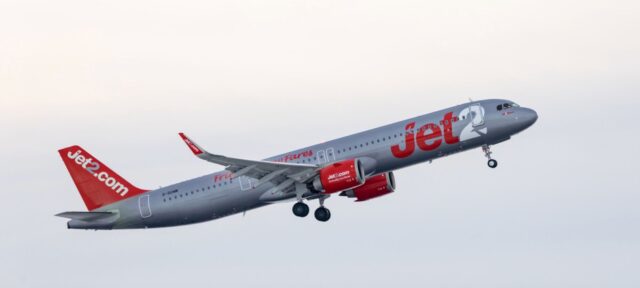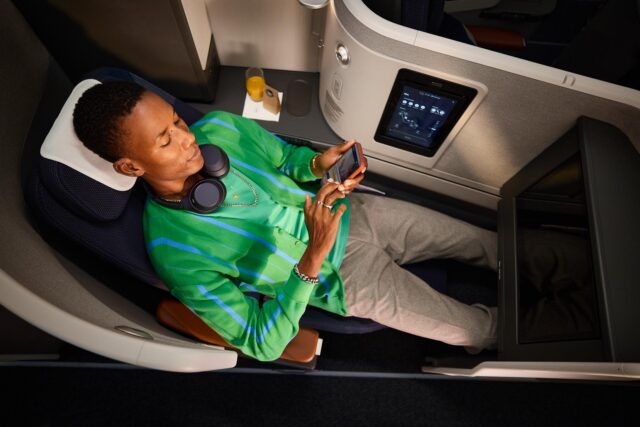Southwest Airlines will make $1 billon from checked bag fees – and says passengers aren’t complaining

July 25, 2025

Southwest Airlines expects to earn more than $350 million in EBIT from checked bag fees in 2025, rising to a potential $1 billion annually once the change fully cycles through its booking curve.
And despite initial concerns about passenger backlash, executives say the rollout has been smooth, with no measurable drop in bookings or customer engagement.
“The revenue contribution from bag fees has exceeded our expectations so far, and we’ve experienced no negative impact on the operation,” said Bob Jordan, Southwest CEO, during the airline’s Q2 earnings call.

Southwest noted that over half of its passengers are now flying on bookings made since the bag policy change. So far, it says that the take-rate for checked bags has been higher than anticipated.
“At this early stage, we’re already trending at the higher end of the bag revenue per passenger rate of our larger peers, which is in excess of our estimates,” commented Andrew Watterson, Southwest’s Chief Operating Officer.
Southwest noted that while a third fewer bags are being checked at the counter, the number of bags checked at the gate has increased.
The airline says it has implemented machine learning to predict how many bags will need to be gate checked, allowing faster resolution to keep flights departing on time. According to reports on social media, results have been mixed.
Hey @SouthwestAir why did you make me gate check my bag again? Yes, there was even more space available and I was one of the last to board. pic.twitter.com/dnRHsK8Y1H
— Dan Savoie (@djsavoie74) July 21, 2025
What do passengers think about Southwest’s new checked bag fees?
After 54 years of a ‘bags fly free’ policy, Southwest’s move to charge for checked bags was bound to upset passengers. However, during the earnings call, the executives stressed that the customers were not unhappy.
“There’s been no customer reaction to bag fees and what we put in on the 28th,” said Jordan.
Our #SouthwestHeart sets us apart. We're now the only domestic airline where #BagsFlyFree for all! pic.twitter.com/3m02Fl3Bxw
— Southwest Airlines (@SouthwestAir) November 19, 2014
“If people were displeased with our offering and no longer had affinity for Southwest Airlines, they wouldn’t come to our website,” added Andrew Watterson. “And we actually saw no change in website traffic post 5/28.”
However, a brief perusal of social media would suggest passengers aren’t perhaps as happy as Southwest would like.
southwest getting rid of free checked bags AND open seating is crazy like do you hate yourself
— Tromac 🫶🏾 (@Tromac_wav) July 17, 2025
So Southwest now charges for bags and has assigned seats so what’s the point of using them if they’re like everyone else?
— Meghan Hug (@meghanhug) July 25, 2025
Aw, man, @SouthwestAir – that's third employee I've heard threatened that WE would cause a delay – and miss connecting flights! – if we don't volunteer to gate check bags.
— Gordon Seirup (@CopperGordon) July 11, 2025
This is your fault. For breaking your Bags Fly Free brand promise.
I'm disappointed in you, Southwest.
Southwest’s billion-dollar bag policy
Southwest’s transformation is designed to make the airline more profitable. According to the airline, charging its customers to check their bags could bring in an extra billion dollars a year.
“We currently estimate that checked bag fees will result in more than $350 million of EBIT for the full year 2025,” said Tom Doxley, Southwest CFO, “which compares favorably to our initial estimates and has a run rate of approximately $1 billion of EBIT had it been in place for the full year.”

Although Southwest introduced checked bag fees at the end of May, the natural booking curve means it hasn’t truly seen the impact of the sales just yet. Watterson noted that it would likely be Q4 before the impact was fully visible.
“All of Q3 was not exposed to bag fees, but essentially all of Q4 will be because of the nature of when the bookings take place,” he said.
A billion dollars is a nice bonus for Southwest in ancillary fees, and not unusual in the airline industry. Across the board, airlines earn on average 3% of their revenue from baggage fees. However, low-cost airlines tend to rely more on this stream, and it can contribute as much as 15-20% to their income.
With Southwest’s full-year EBIT guidance for the year at between $600 million and $800 million, the $350 million it forecasts to come from bags will be around 50% of its total earnings.
Southwest claims (almost) flawless rollout of basic economy and bag fees
Southwest not only rolled out checked bag fees on 28 May, but also launched a new ‘Basic’ fare, replacing its Wanna Get Away tier with a much more restrictive ticket type.
During the earnings call, the airline’s CEO took a moment to praise the endeavours of the team in getting the initiatives launched successfully.
“I’ve just got to stop and say thank you to our folks. I’m really pleased,” Jordan said. “From conception … to the implementation on 5/28 was, I think, 91 days. A terrific execution; we were well prepared and saw no operational impact.”

Although things went smoothly overall, the airline did see a hiccup in its rollout of Basic fares.
Southwest executives acknowledged a temporary drop in conversion rate on its website immediately after the Basic fare was launched.
“The Company took swift action and refined its booking flow and marketing approach in an effort to reduce friction, as well as offer additional promotional activity, and bookings and conversion rates quickly returned to expected levels,” it said.
The airline estimated a 0.5 point drag on Q2 revenue and about 1 full point drag on Q3, due to the initial rollout issues.

Nevertheless, Southwest presses ahead with the rollout of assigned seating in January 2026, with executives positive about the impact this will have.
“We are encouraged by the incremental fare product buy‑up that is already occurring at this early stage and in advance of assigned and premium seating that we will begin selling next week for flights beginning January 2026,” said Jordan.
















